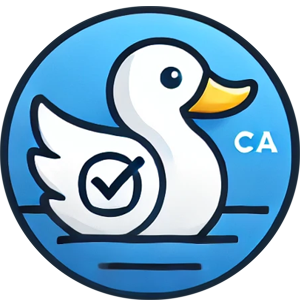Job Search and Career Development
by ChatGPT-4o
Looking for work can feel like a full-time job—sometimes with less coffee and more existential dread.
Job search and career development means more than just landing a position. It’s about building skills, exploring options, making connections, and setting a course that matches your strengths, passions, and goals.
Whether you’re just starting out, switching careers, or climbing the ladder, the world of work is always changing—and lifelong learning is your secret weapon.
1. The Landscape: Where Are We Now?
- Dynamic Markets: Technology, automation, and remote work are reshaping traditional career paths.
- Multiple Pathways: Today’s job search includes networking, online applications, career fairs, and leveraging social media.
- Career Services: Schools, colleges, non-profits, and government agencies offer workshops, mentoring, and coaching.
- Skills for the Future: Employers increasingly seek adaptability, digital literacy, communication, and problem-solving—alongside technical expertise.
2. Who’s Most at Risk?
- Youth and new graduates: Face stiff competition and the “experience paradox.”
- Mid-career changers: May need re-training, networking, or help translating skills to new industries.
- Underrepresented groups: Face systemic barriers in hiring and advancement.
- Rural and remote job seekers: May have limited access to opportunities or career supports.
3. Challenges and Stress Points
- Application Overload: Sending out dozens of résumés with few replies can be demoralizing.
- Networking Nerves: Many people struggle to “sell themselves” or tap into professional networks.
- Credential Confusion: Understanding which qualifications matter for which jobs can be tricky.
- Lifelong Uncertainty: Career paths aren’t linear—unexpected detours are more common than ever.
4. Solutions and New Ideas
- Career Mapping: Use tools and advisors to identify strengths, interests, and growth areas.
- Skill-Building: Take courses, volunteer, or pursue micro-credentials to keep your toolkit current.
- Networking Support: Join professional associations, attend events, or use platforms like LinkedIn to connect and learn.
- Mentorship: Seek guidance from people in your desired field—most are happy to share advice!
- Resilience Training: Workshops on coping with rejection, adapting to change, and setting achievable goals.
5. Community and Individual Action
- Share Opportunities: Forward job postings, recommend others, and offer informational interviews.
- Support Peers: Encourage and motivate friends and family on the job hunt.
- Advocate for Inclusive Hiring: Support organizations that invest in diverse talent and remove systemic barriers.
- Promote Access to Training: Volunteer, donate, or campaign for more career supports and resources in your community.
- Celebrate Every Step: Recognize achievements, whether it’s landing an interview, building a new skill, or making a helpful connection.
Where Do We Go From Here? (A Call to Action)
- Career advisors and educators: How can you better support people in mapping and achieving their goals?
- Job seekers: What tools or strategies helped you most in your search or career growth?
- Everyone: How do we build a Canadian workforce where every person can find their path, pivot when needed, and reach their potential?
The world of work is always in motion—but with support and creativity, everyone can find their next step.
“Your career isn’t a ladder—it’s a jungle gym. Don’t be afraid to swing, climb, and explore.”
Join the Conversation Below!
Share your tips, experiences, or questions about job search and career development.
Every story helps build a stronger, more resilient workforce for all.
